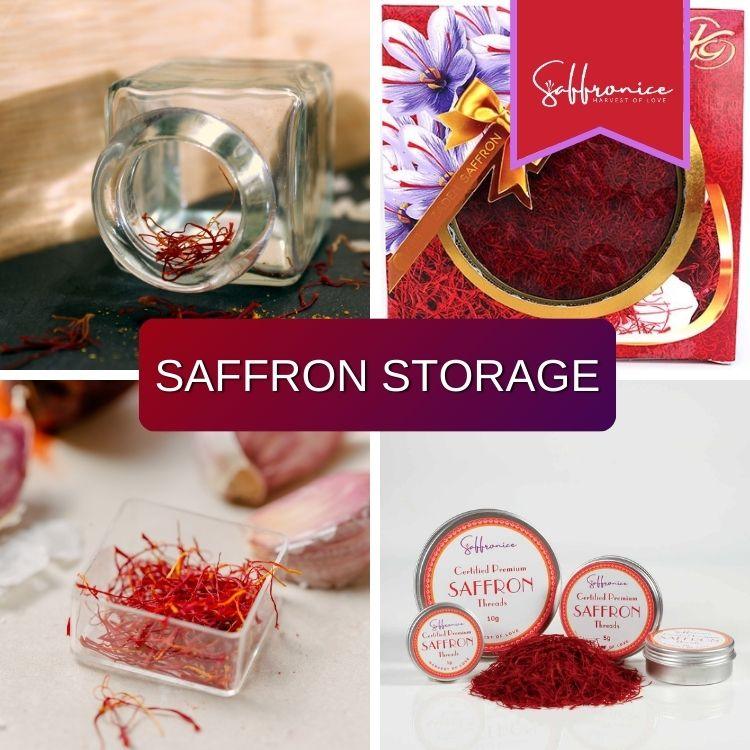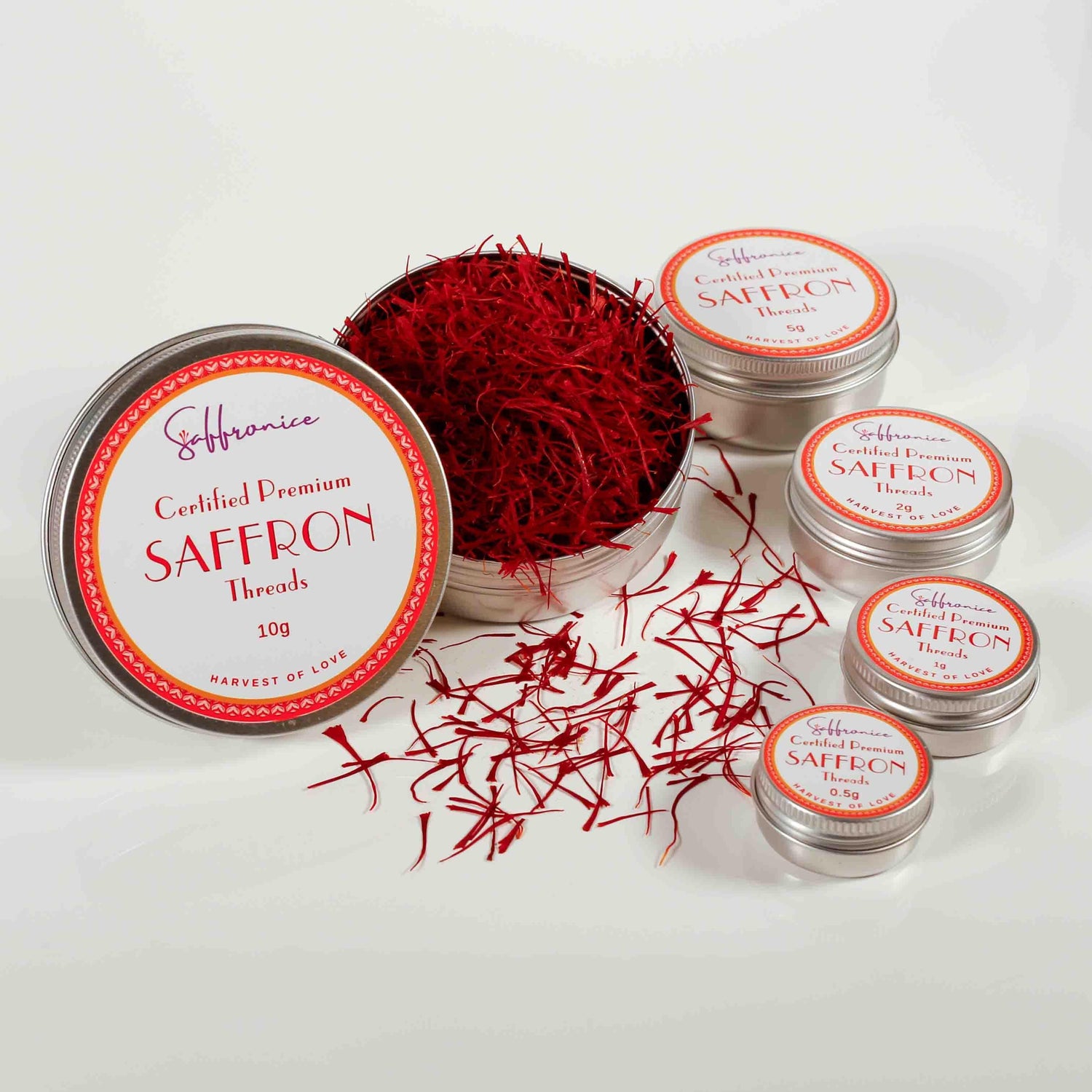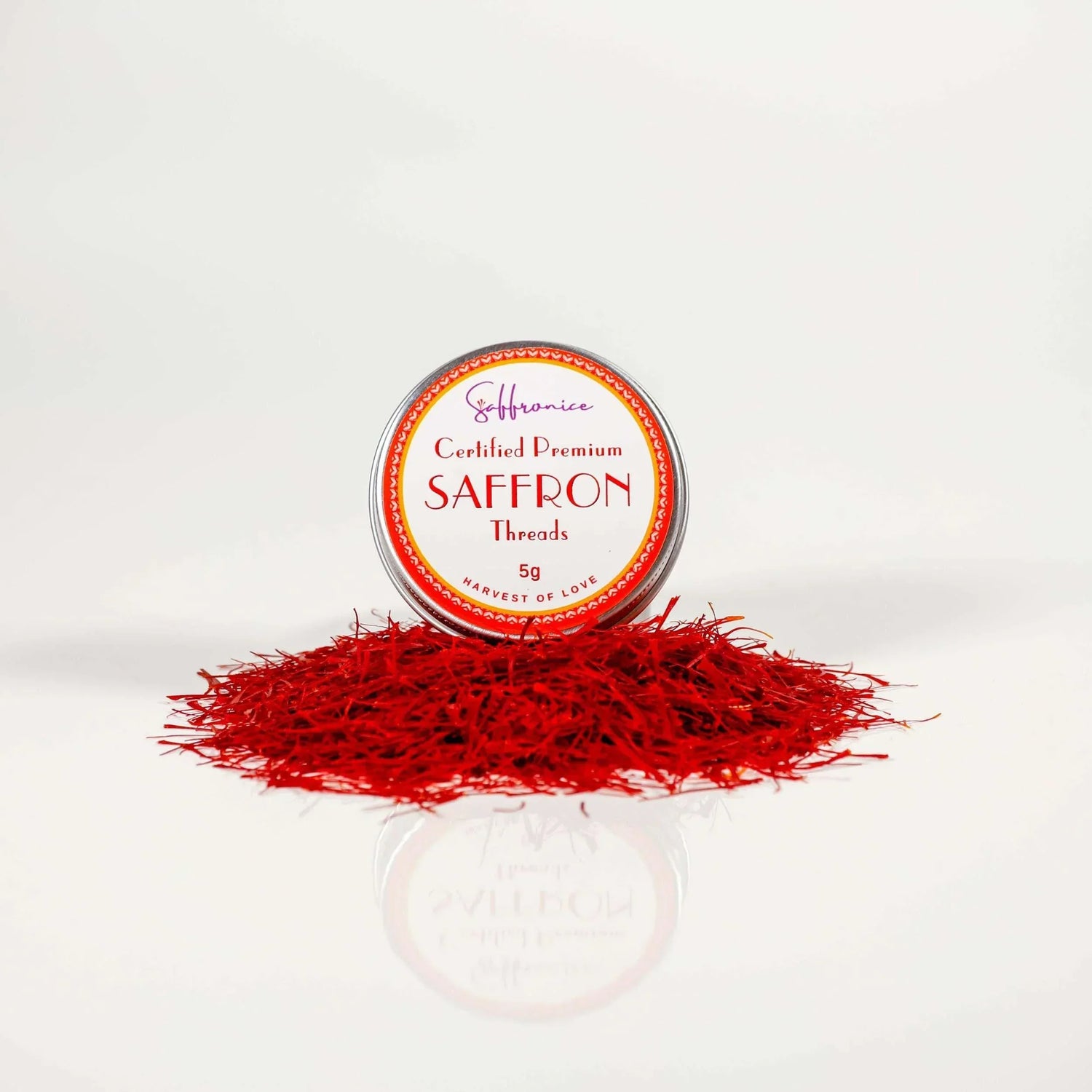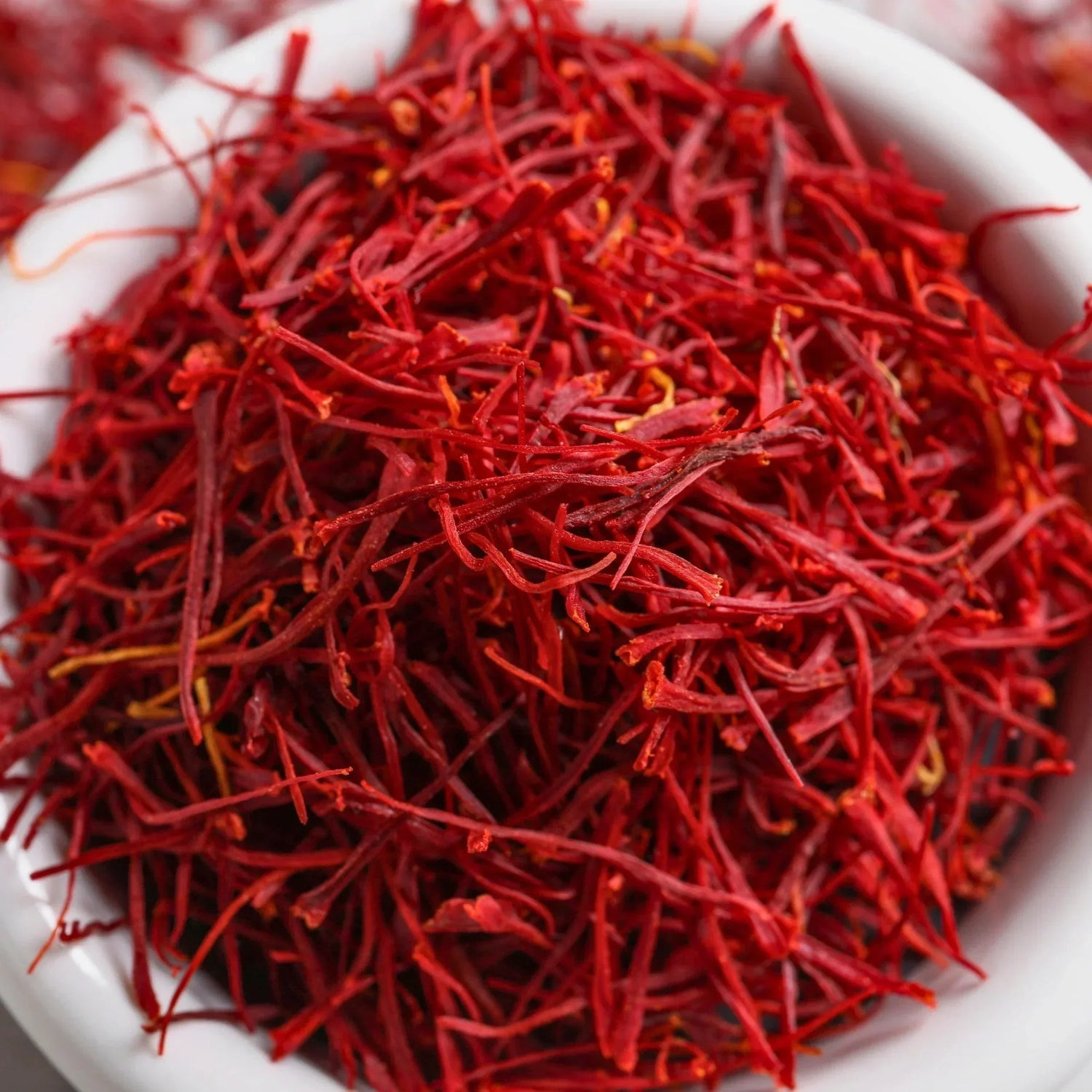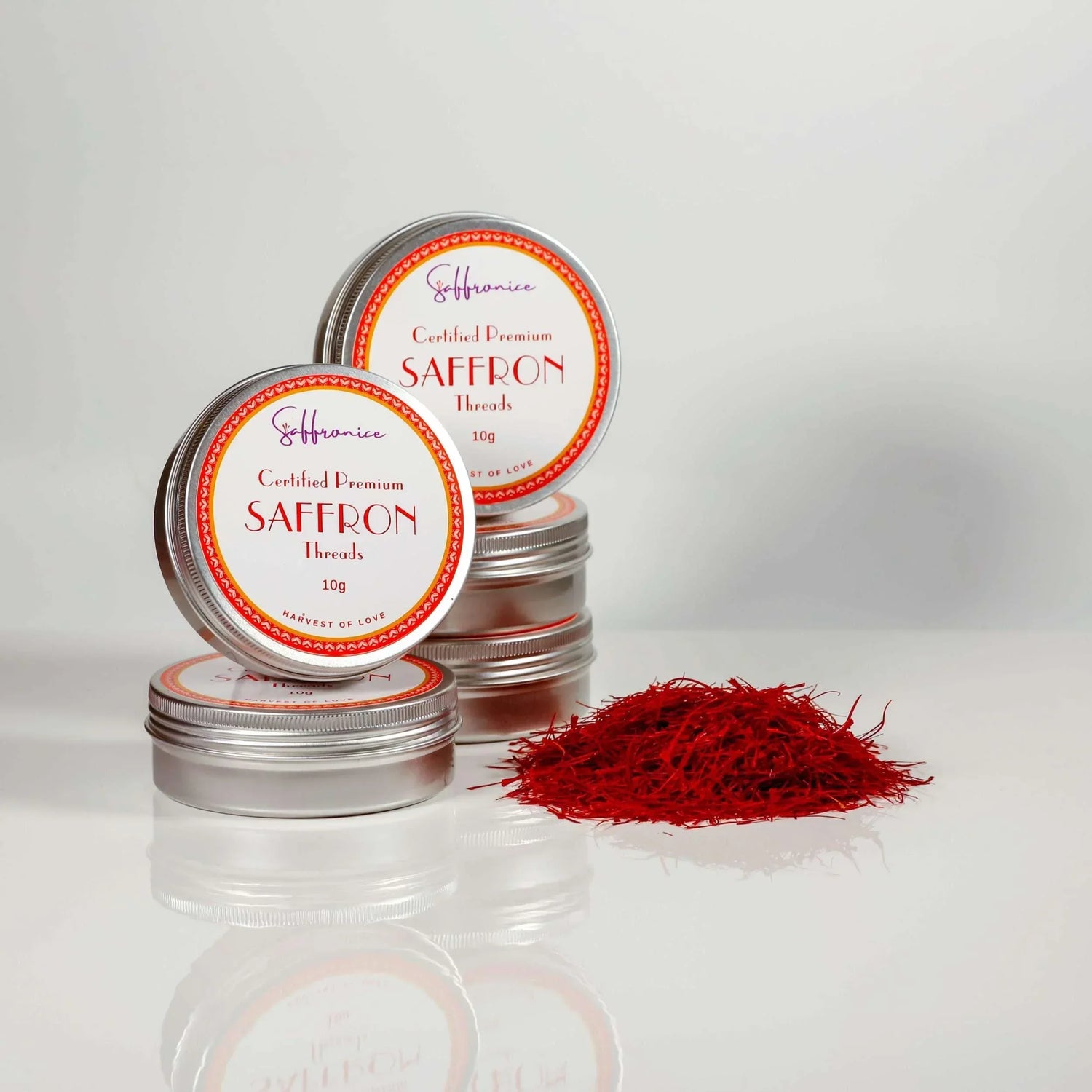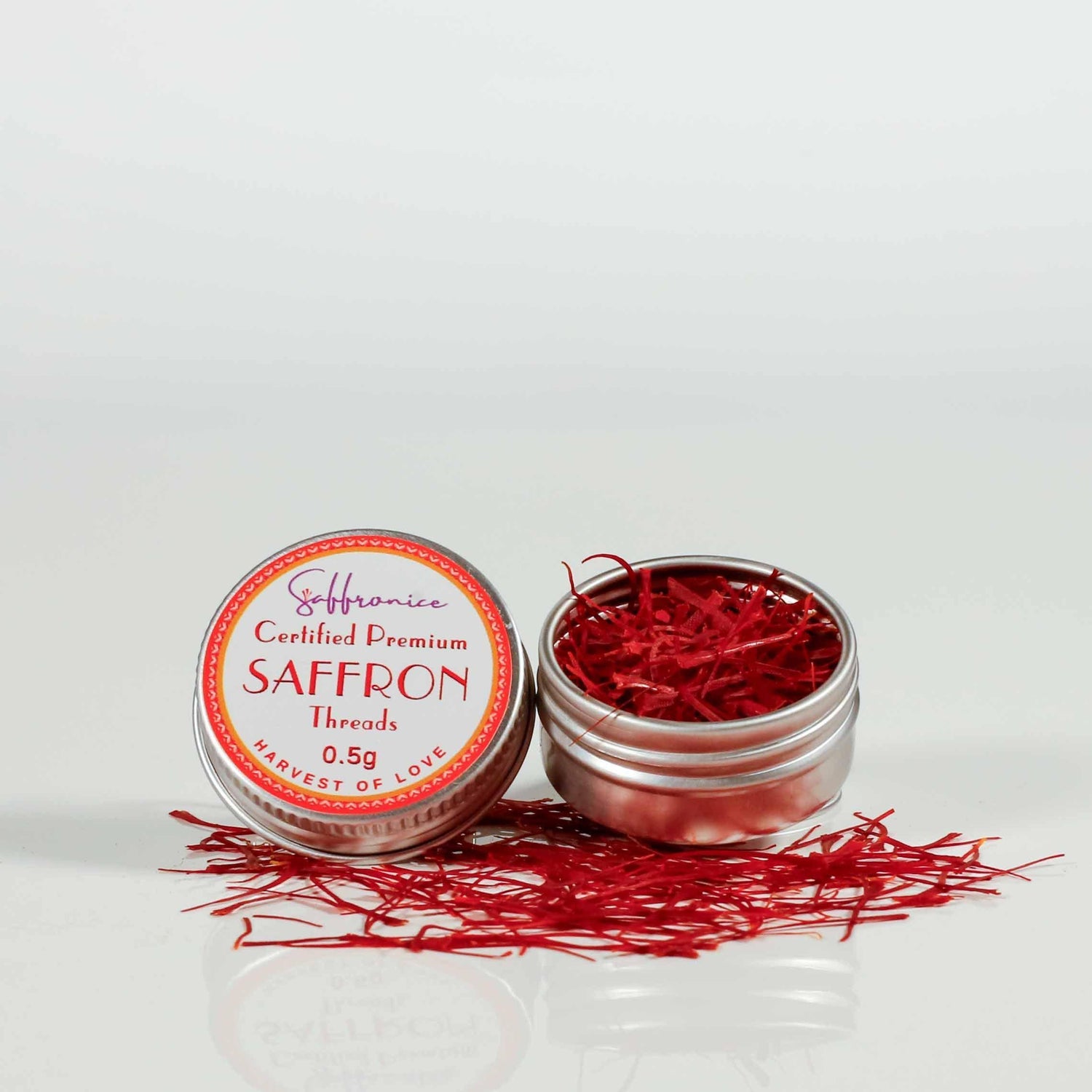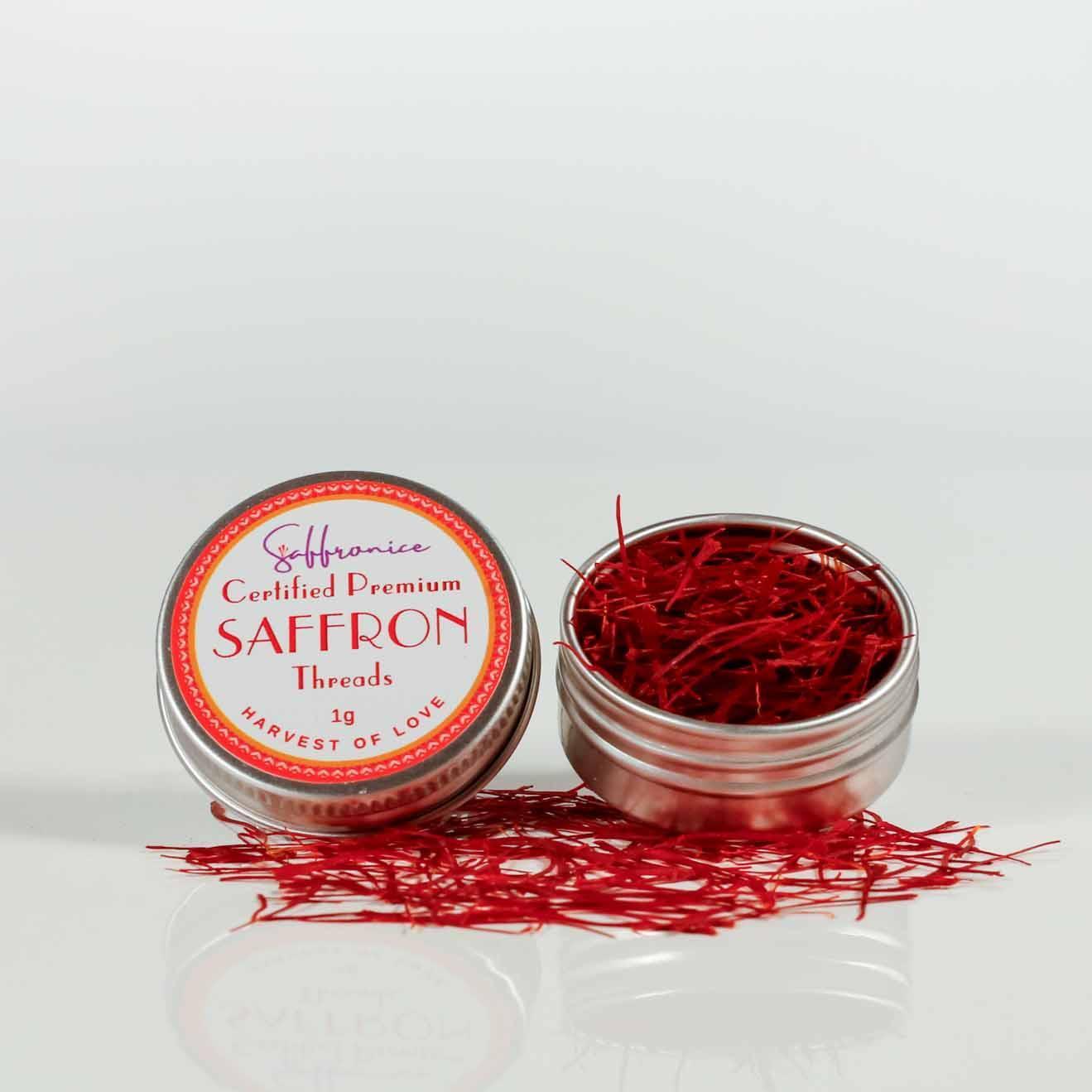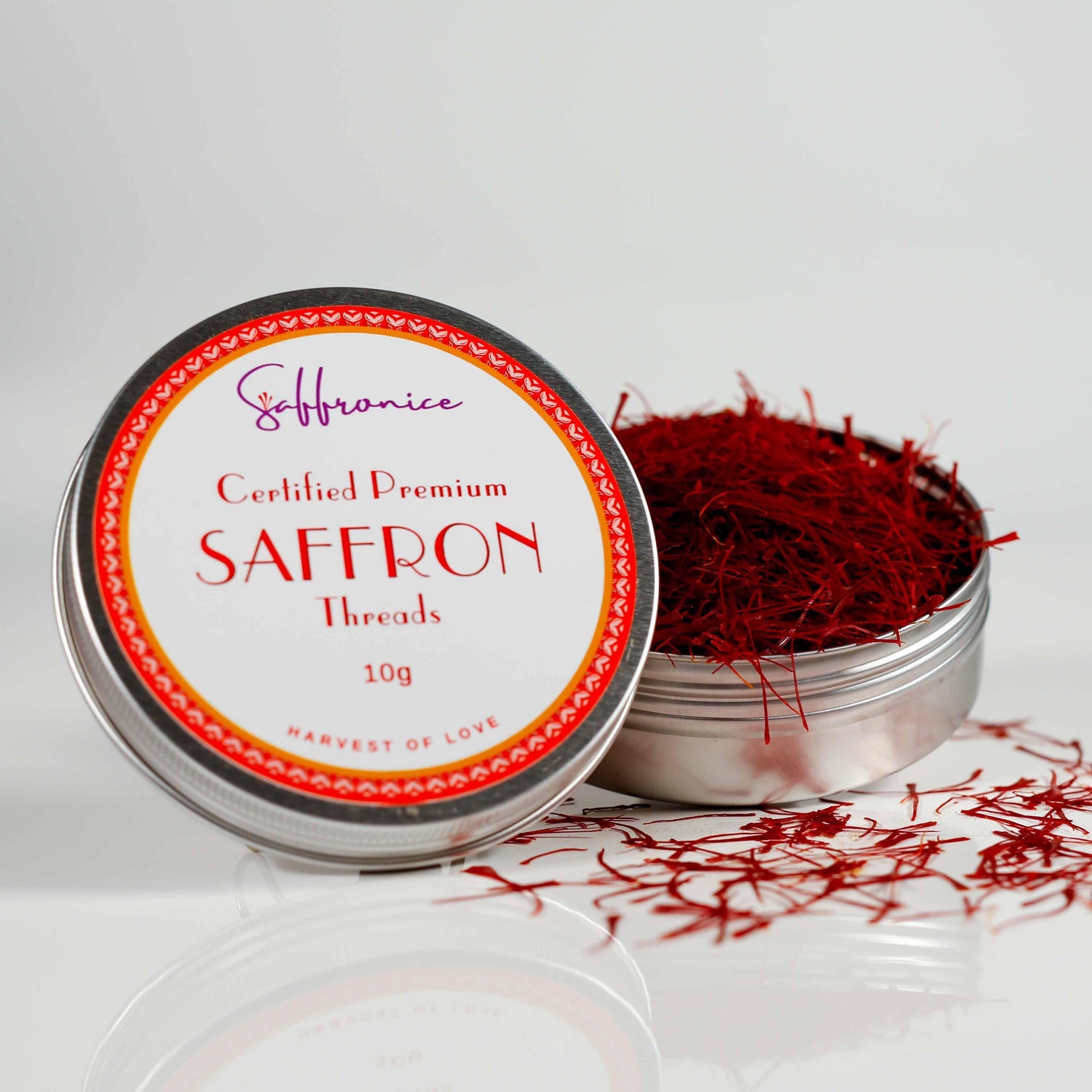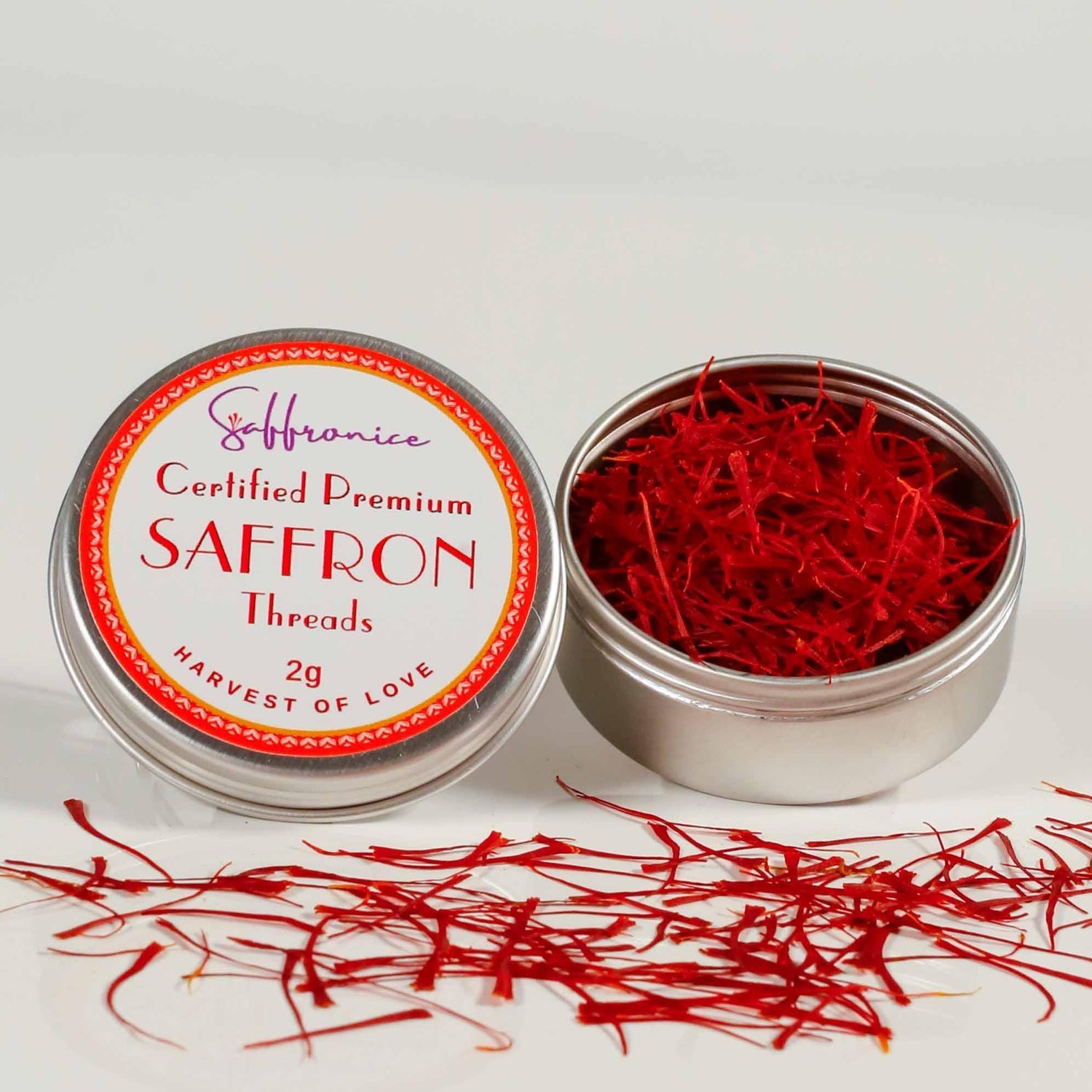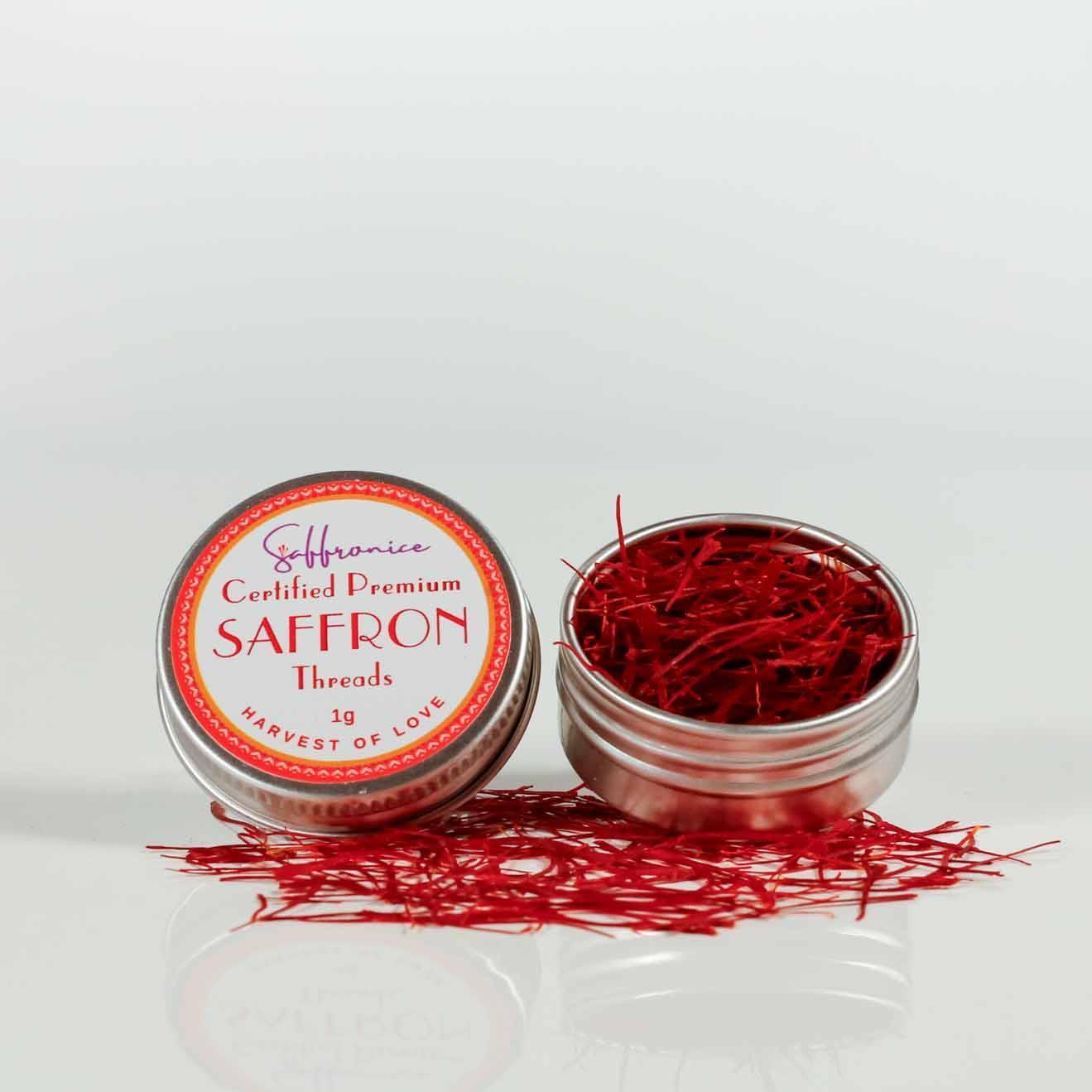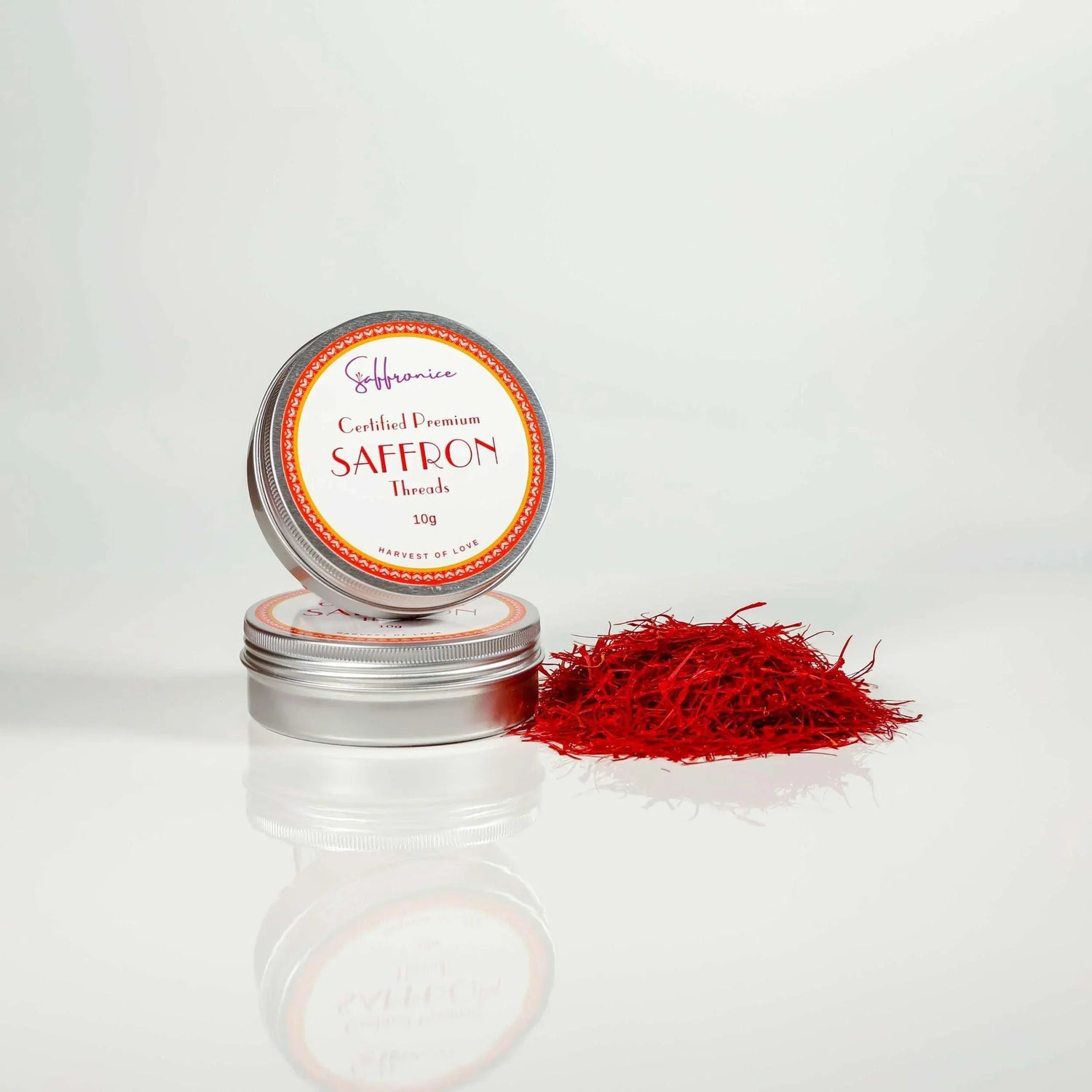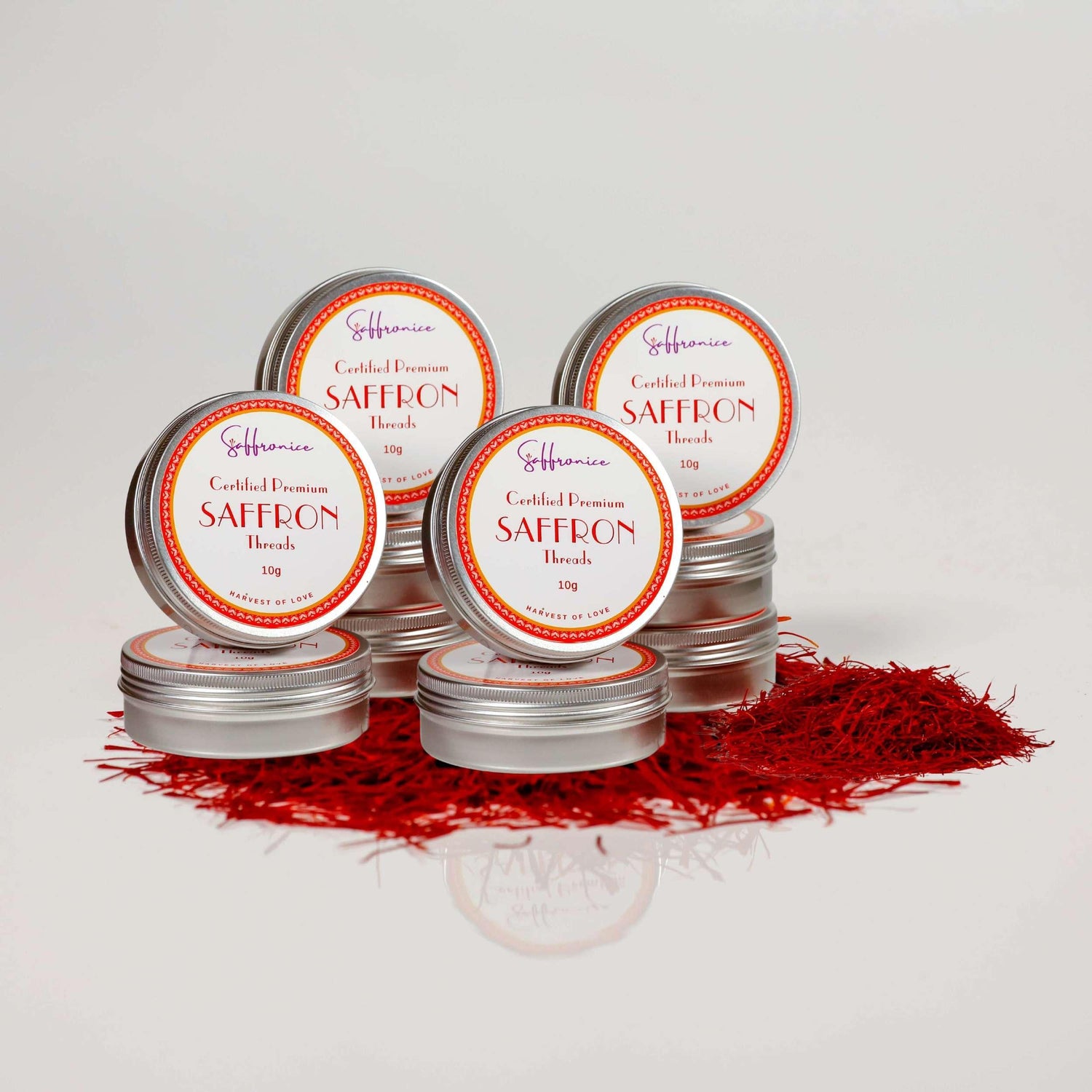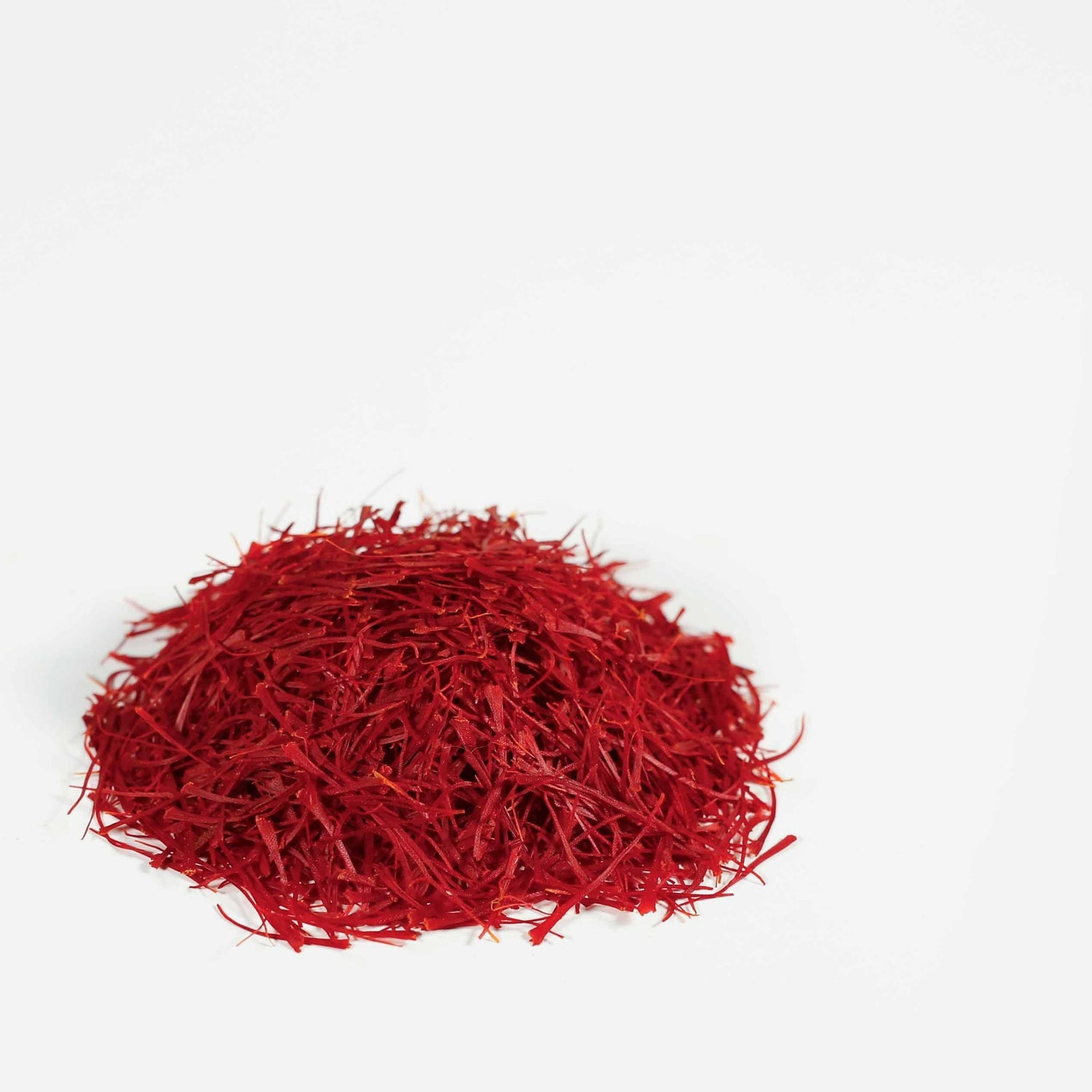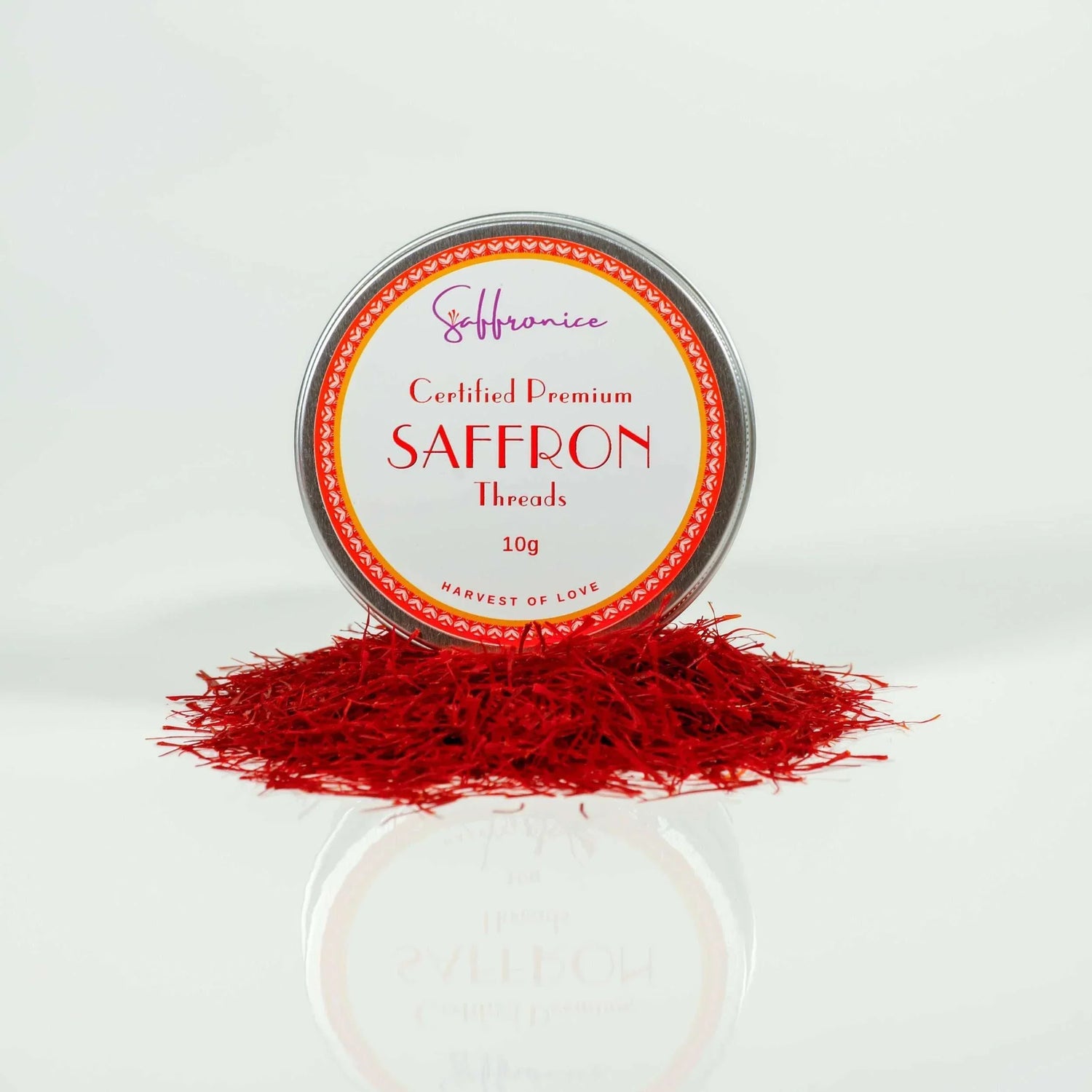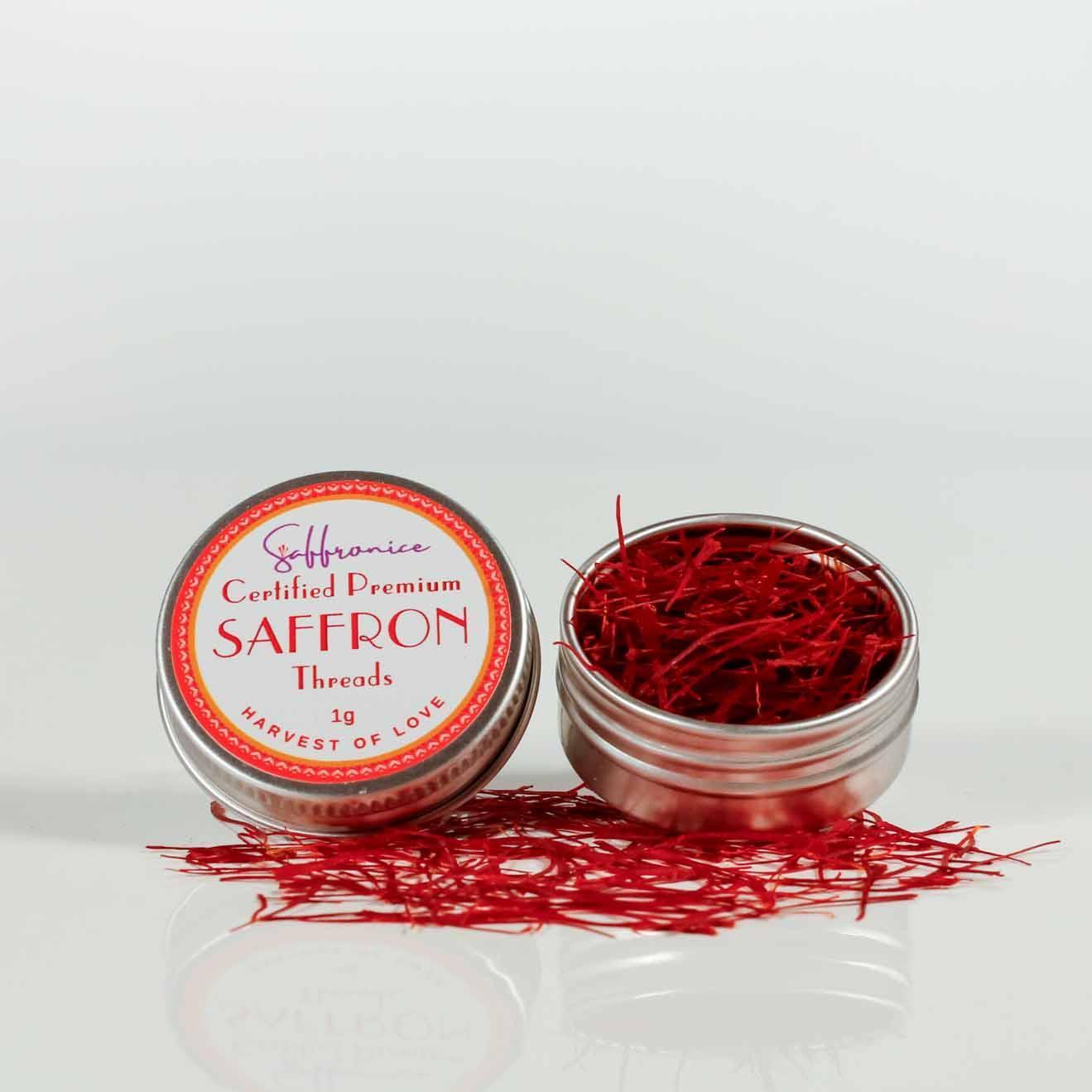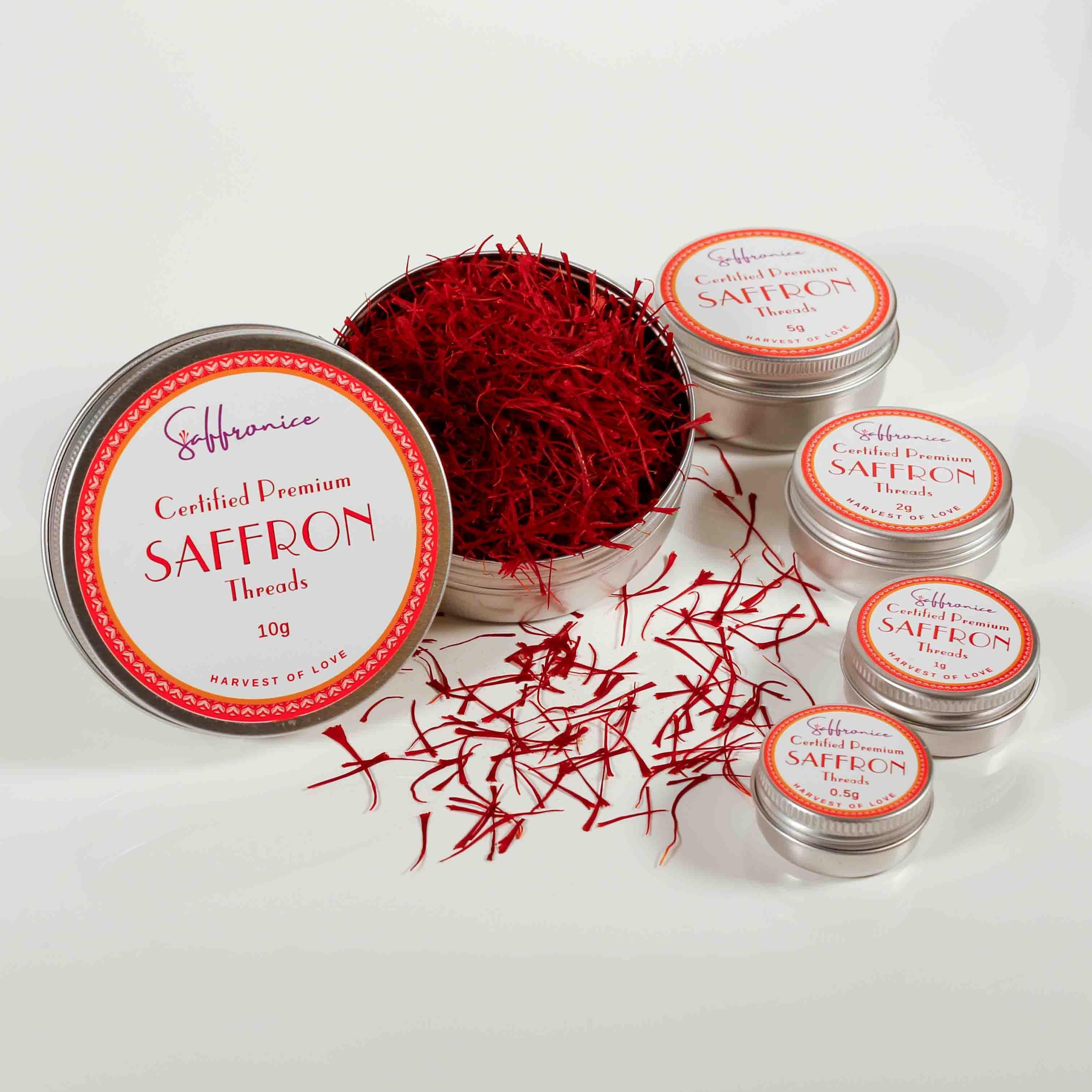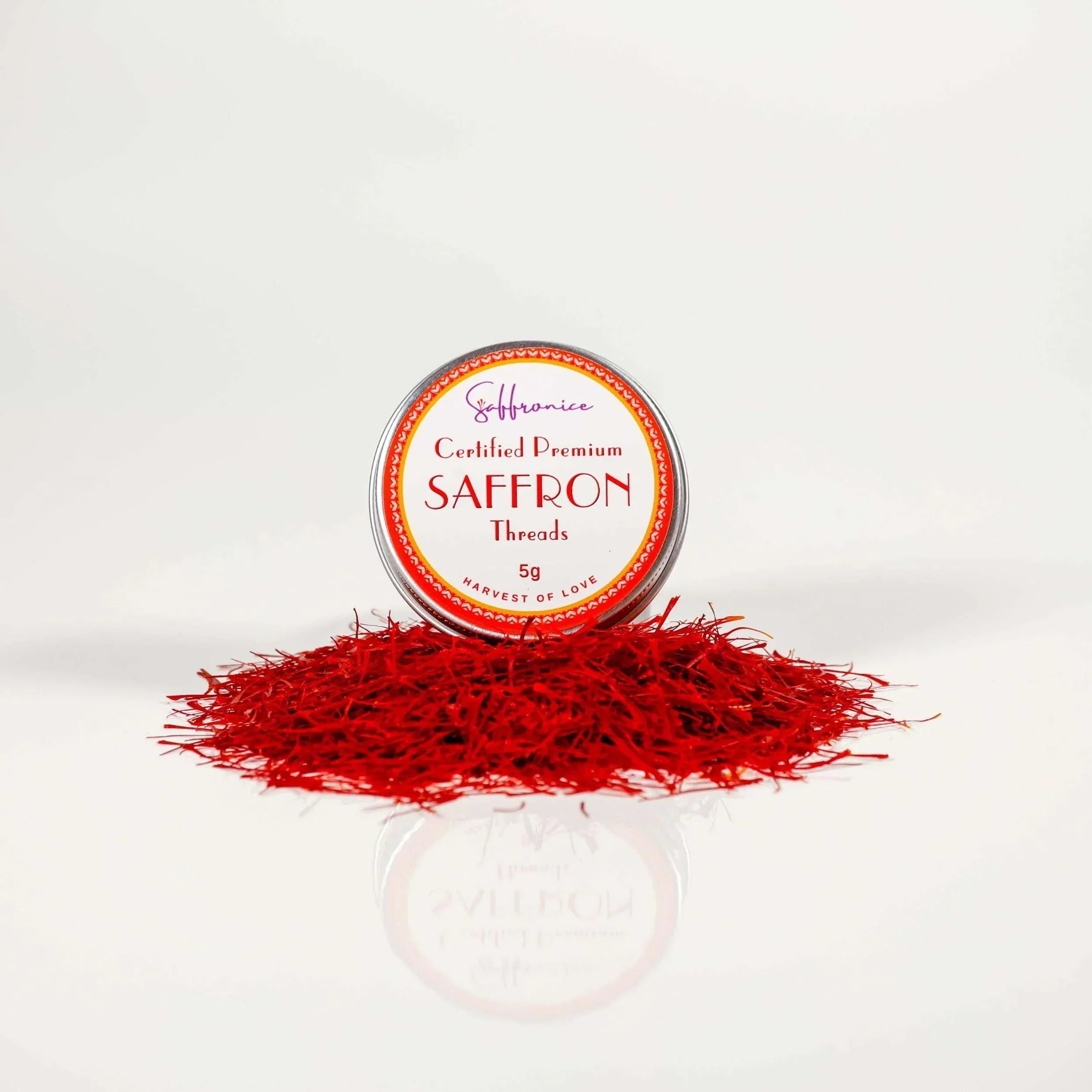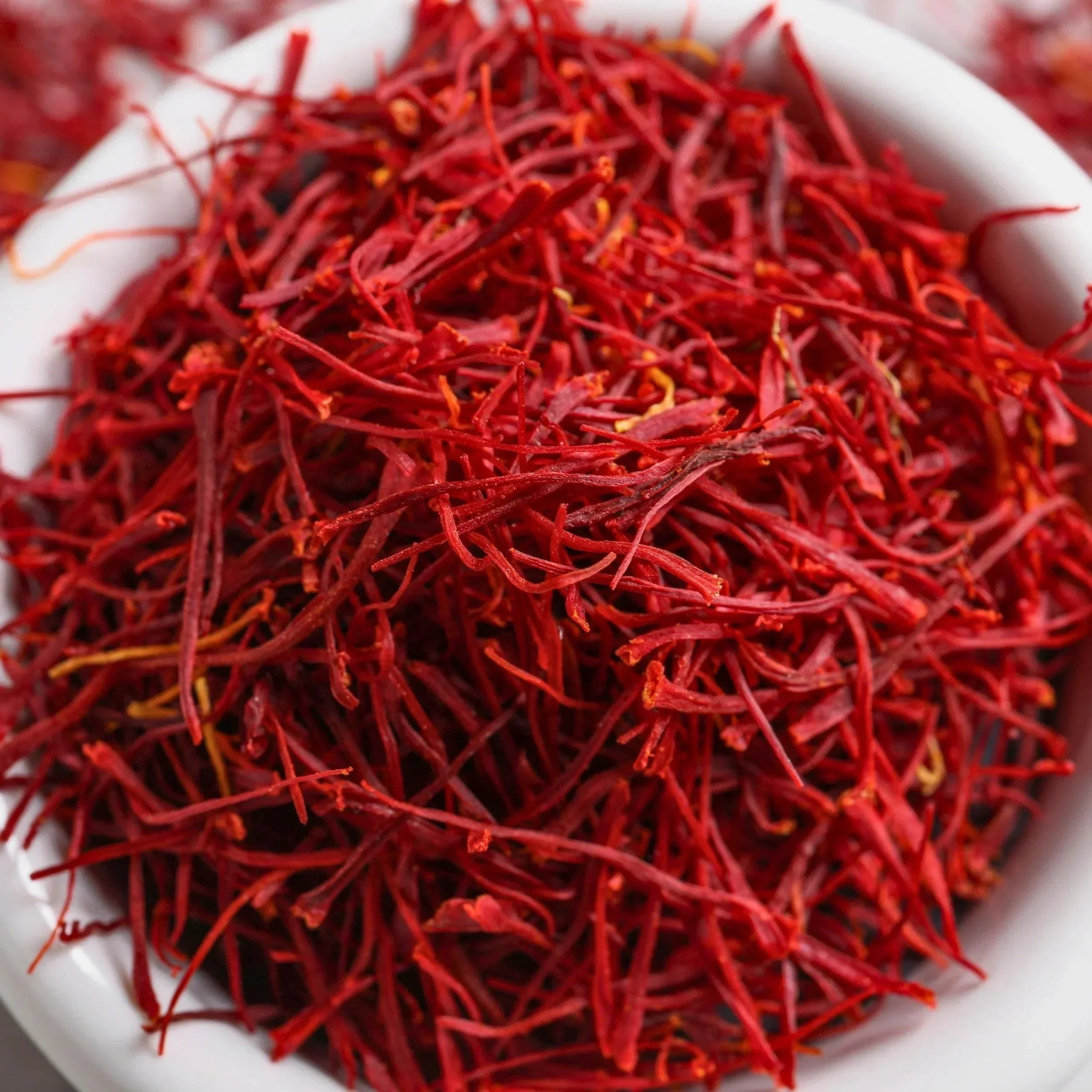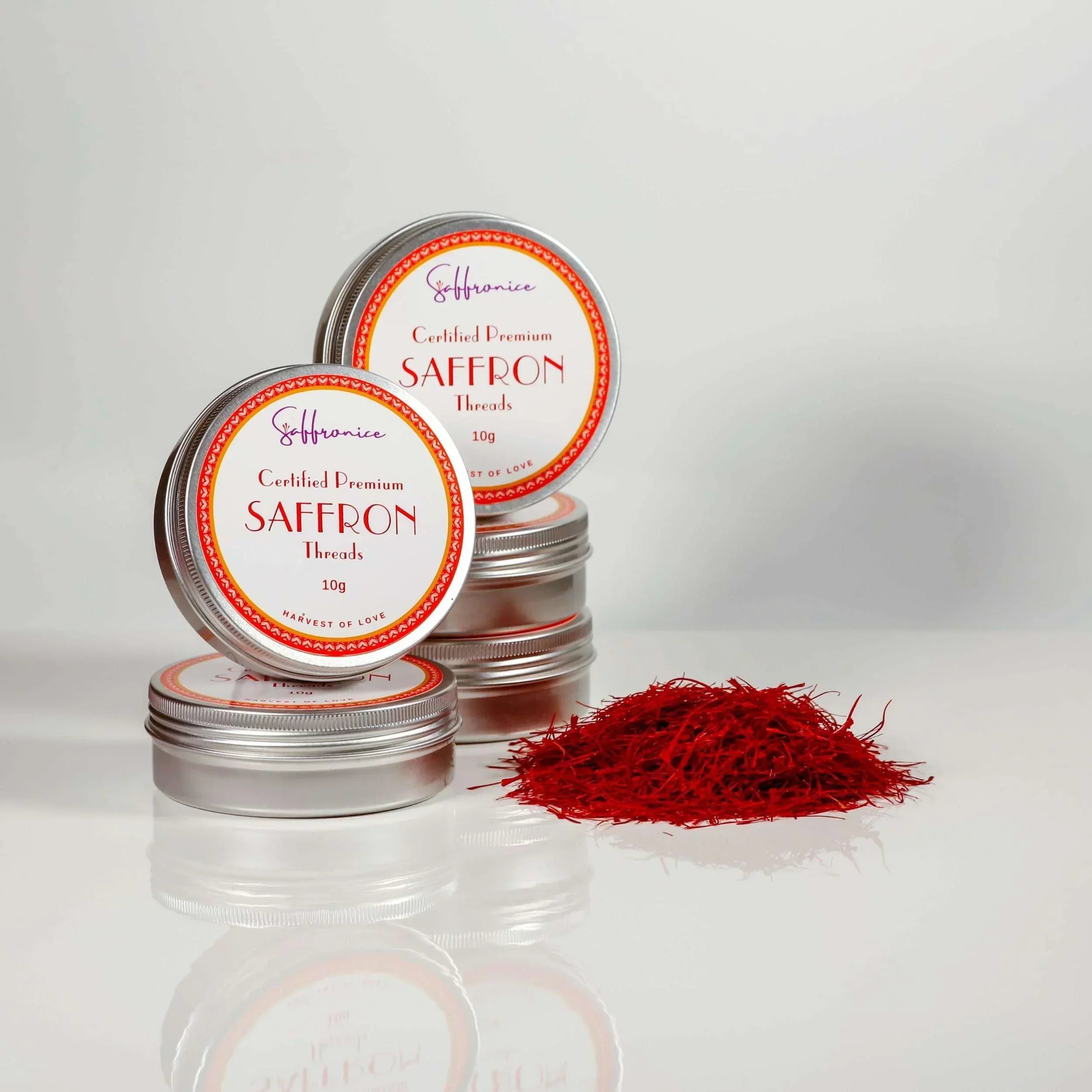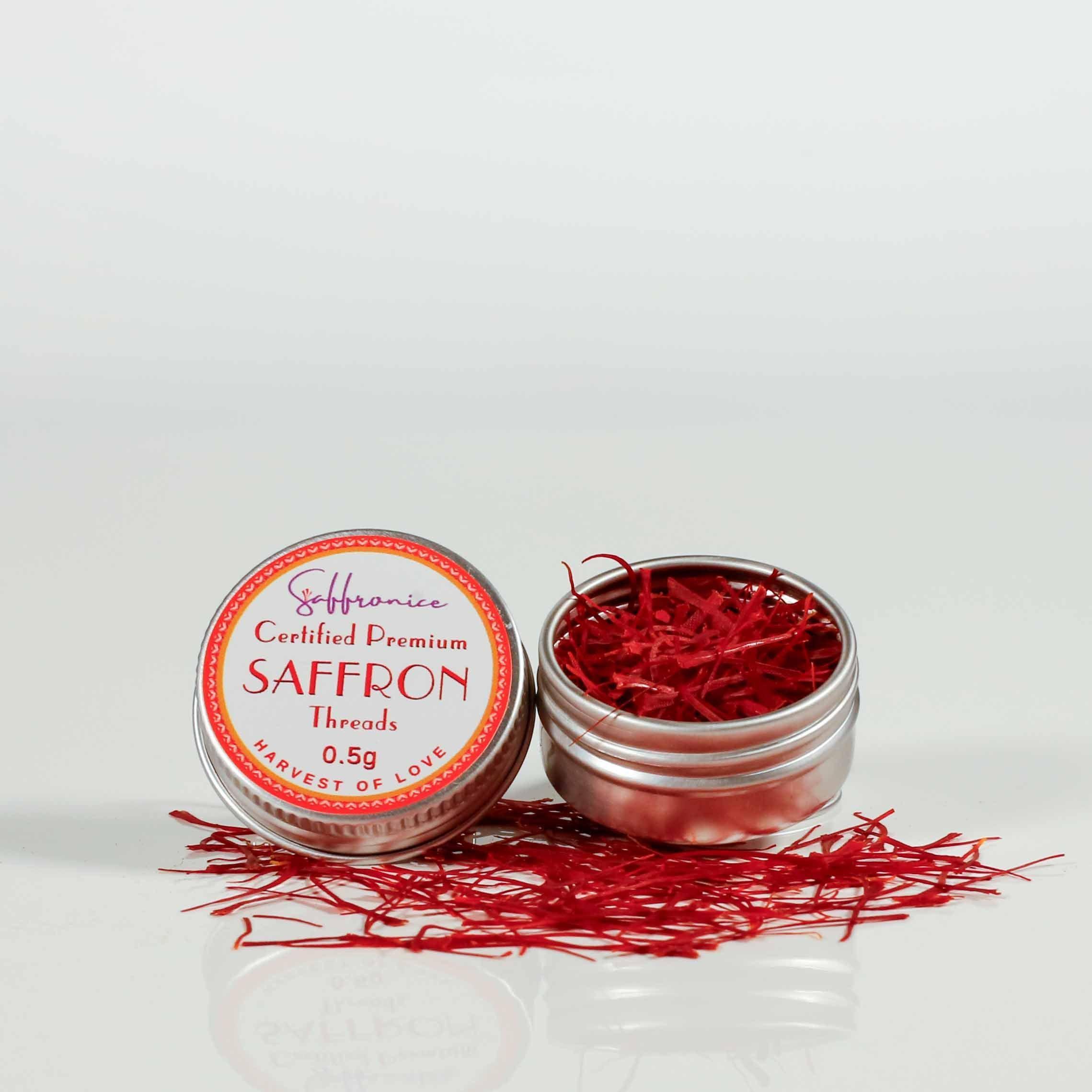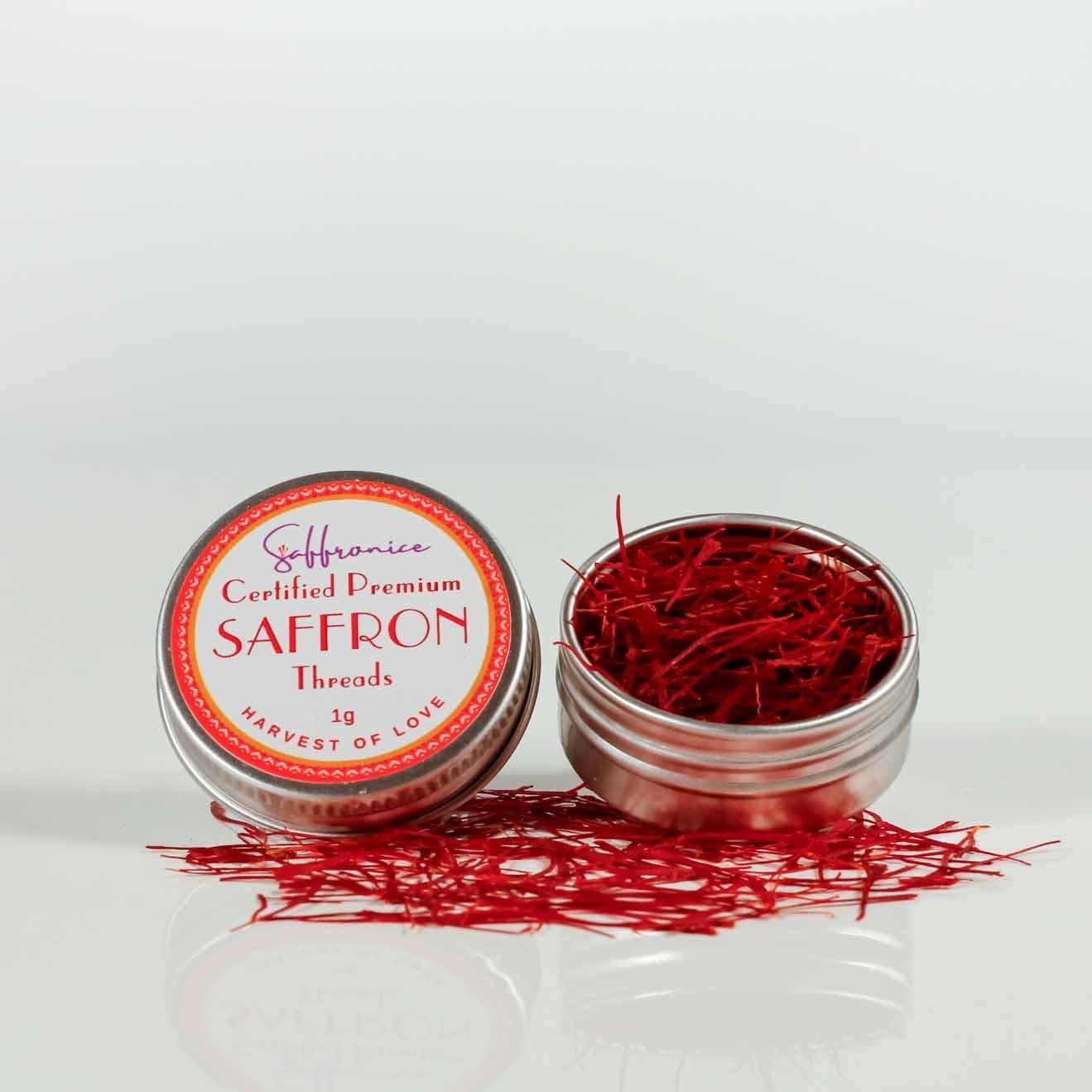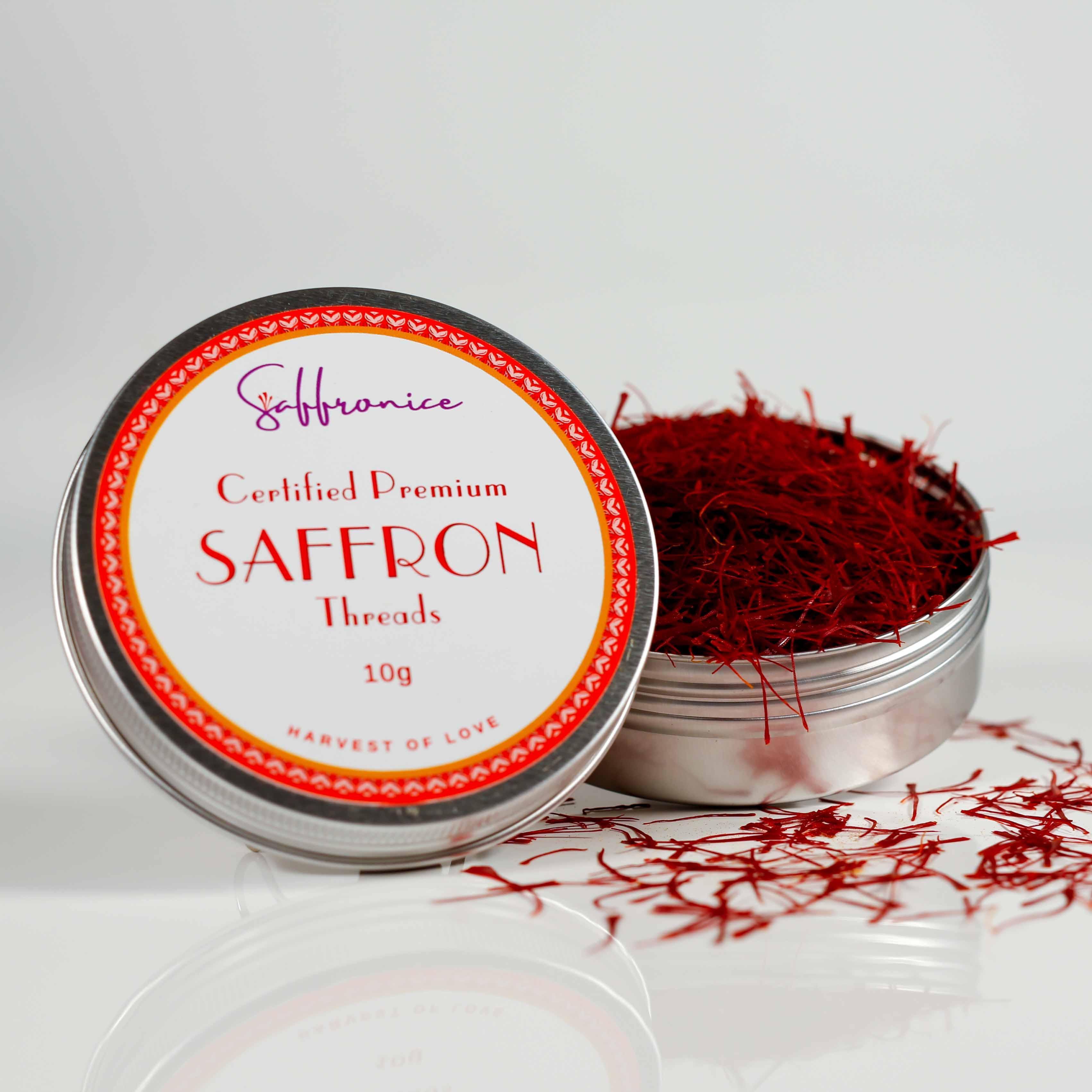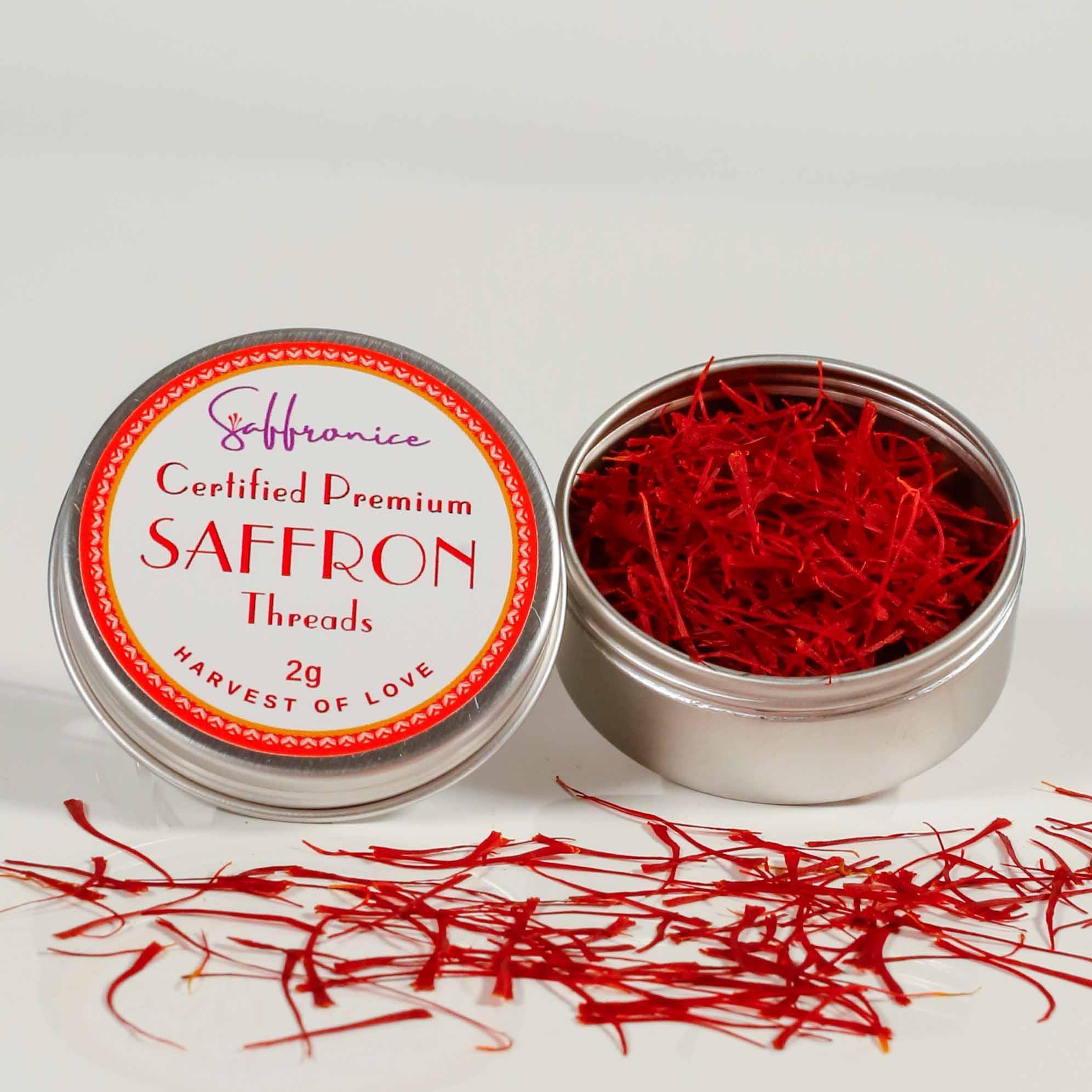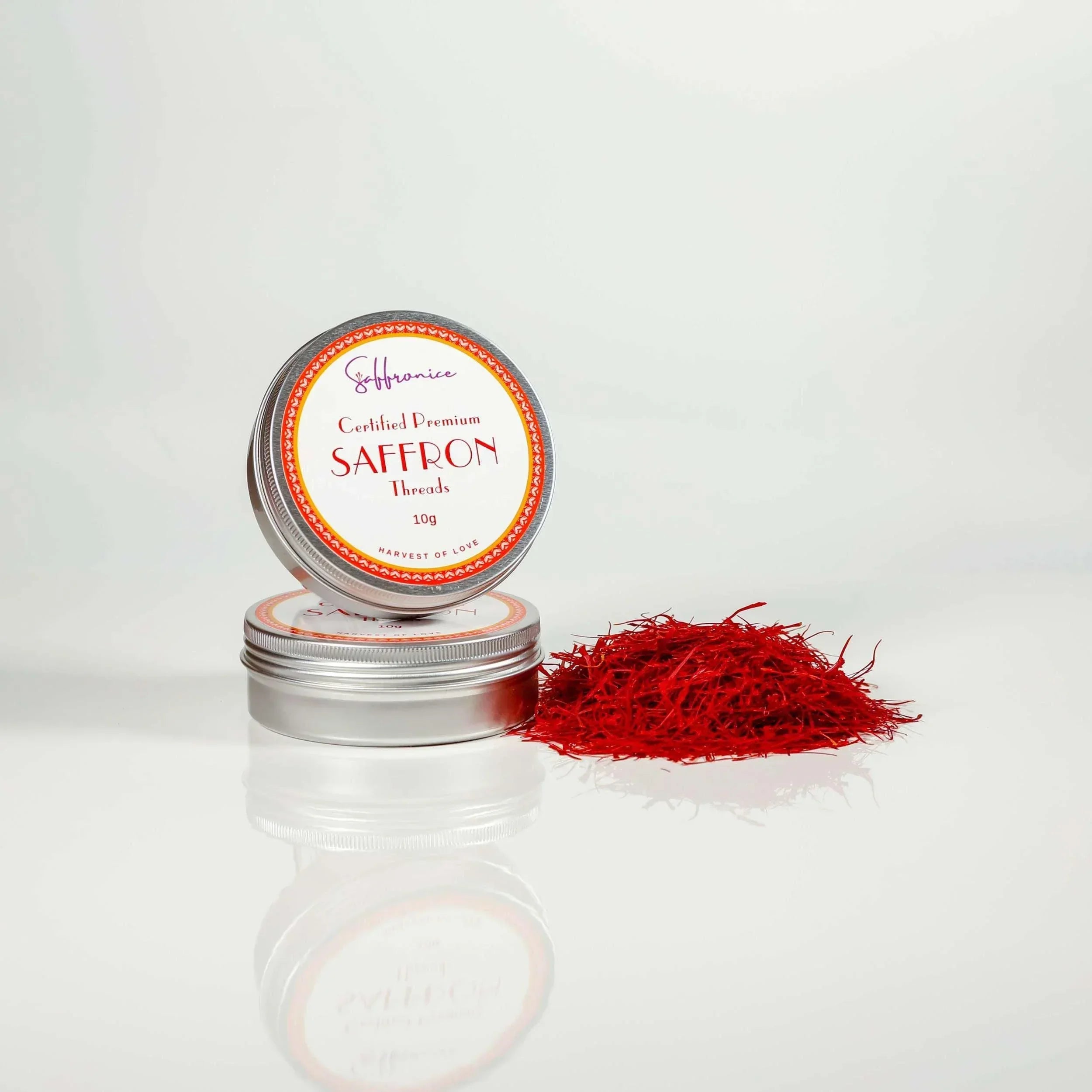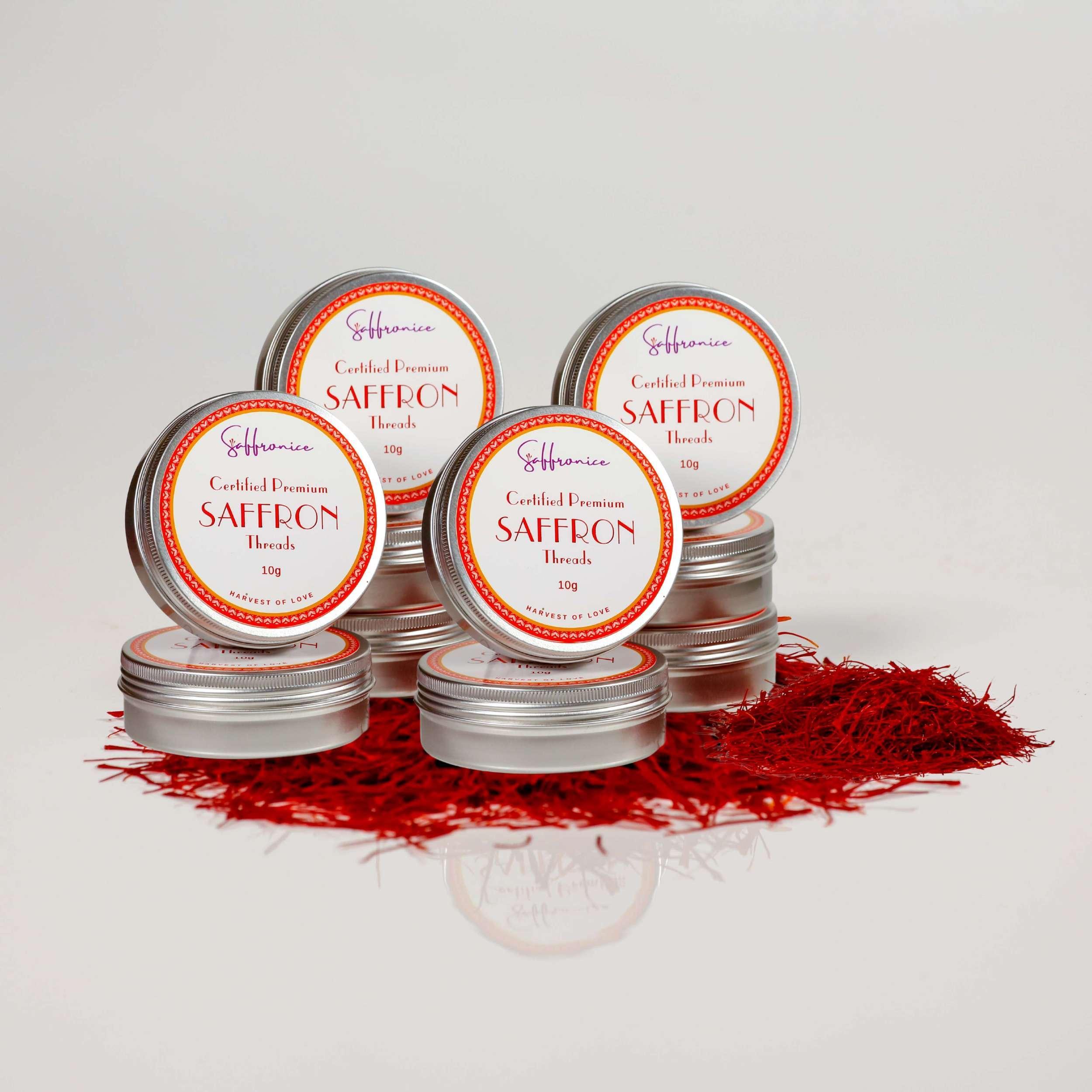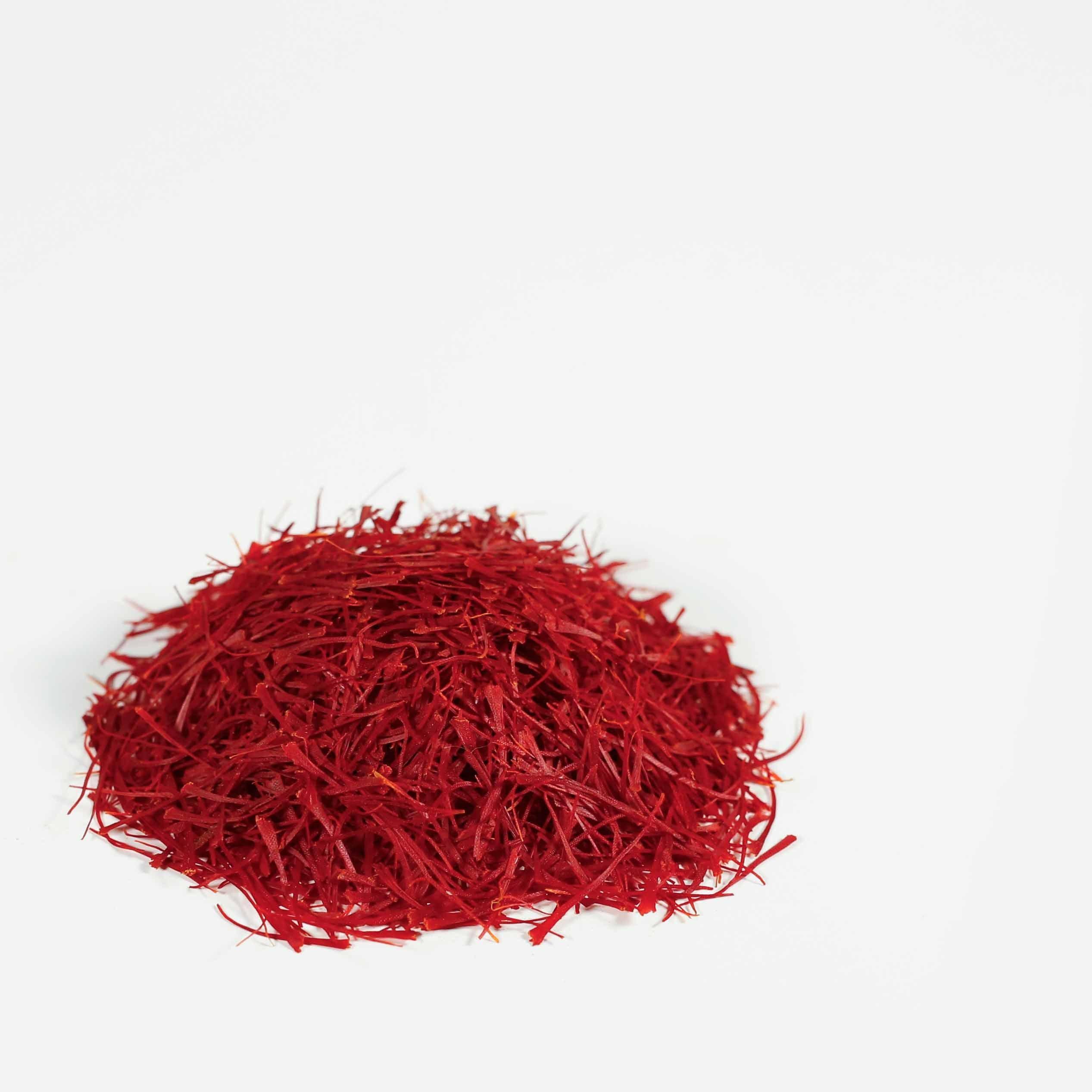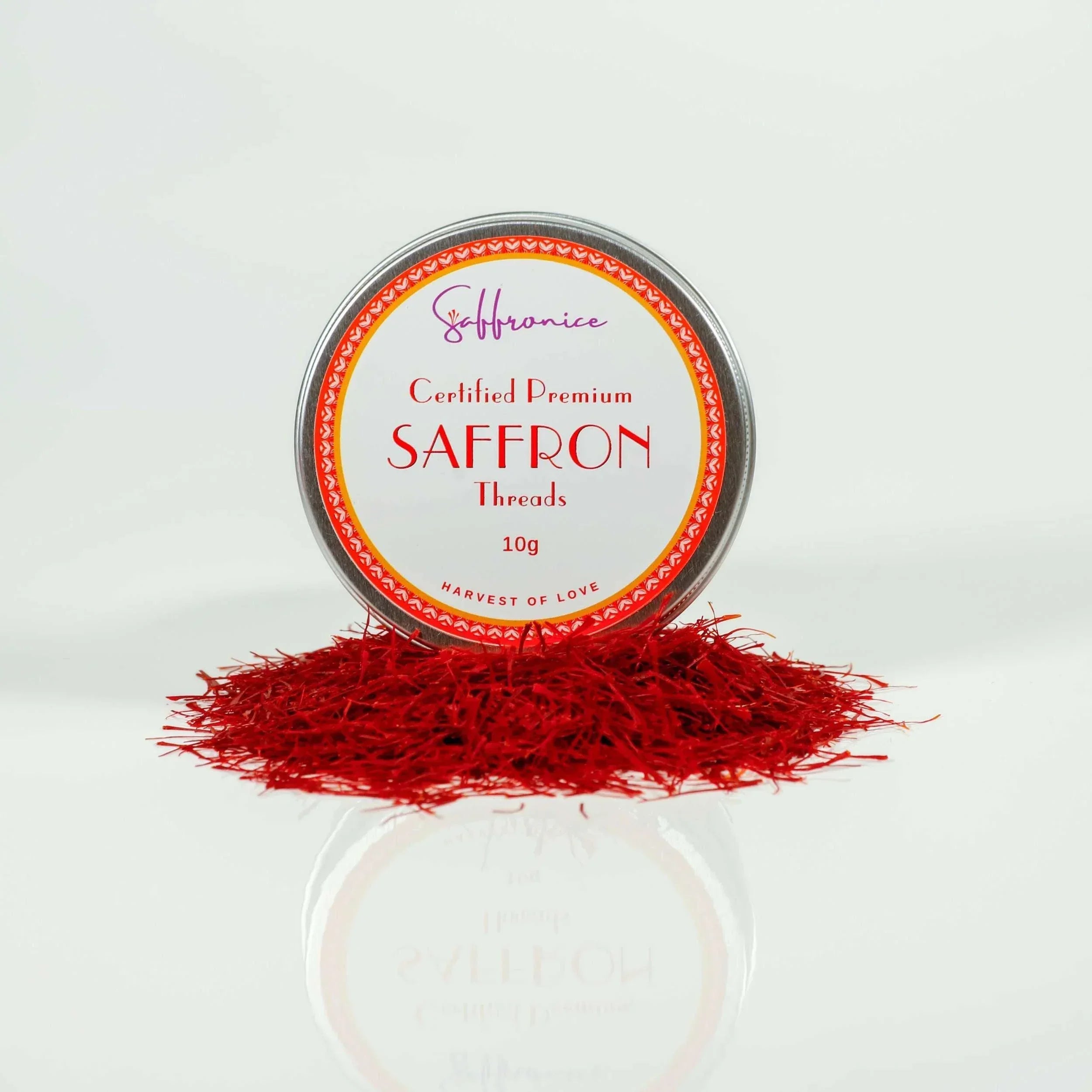Why is storing saffron important?
Saffron is a versatile spice that is both luxurious and widely used. Known for its vibrant colour and captivating scent, saffron is an essential ingredient in gourmet cooking and traditional medicine. It adds depth to Persian rice dishes and subtlety to French bouillabaisse, making it an incredibly impactful flavour enhancer.
What Makes Saffron Special?
- Aroma: Sweet, floral scent with earthy undertones.
- Colour: Striking deep crimson that transforms dishes.
- Flavour: Complex combination of sweet and slightly bitter tastes.
While its rich qualities are undeniable, maintaining saffron's freshness requires careful attention. This guide will unveil the secrets of how to protect and store saffron for maximum freshness. Whether you're a seasoned chef or a home cook with a penchant for flavourful adventures, mastering where to store saffron can make all the difference.

Understanding Saffron Quality and Its Impact on Storage
Saffron's allure lies in its unique blend of crocin, picrocrocin, and safranal. These compounds are the unsung heroes behind saffron's vibrant colour, enchanting aroma, and distinct flavour. Crocin is responsible for that intense crimson hue—imagine a sunset captured in a spice. Picrocrocin brings a slightly bitter taste that dances on your palate, while safranal contributes to its sweet and floral fragrance. If you're curious about the overall taste profile of saffron, you can dive deeper into what saffron actually tastes like.

Why Quality Matters
Picking the right saffron grade is crucial. The higher the grade, the richer these compounds. Grades like Negin and Sargol stand out as top choices for their robust flavour profile and aromatic depth. But there are other varieties too; the 10 best saffron in the world offer unique flavours and medicinal properties that make them highly sought after.
Here's why quality matters: it’s not just about taste; it’s about longevity. High-quality saffron retains its potency longer.

How Storage Affects Saffron
To ensure your saffron remains as fresh as a morning breeze, storage is key. Keep it cool, dark, and dry. Moisture is the enemy—inviting mould and dulling those precious threads. And let’s talk about UV protection; like a protective shield, it guards against degradation.
Avoid plastic containers—they can taint the aroma with unwanted odours. Instead, opt for airtight metal tins that respect the delicacy of this golden treasure. Proper storage not only preserves saffron's colour but ensures each thread bursts with life every time you use it.

Best Practices for Storing Saffron
Preserving the vibrant essence of saffron begins with mastering how to store it correctly. The best way to store saffron involves a few simple yet crucial steps to ensure it retains its flavour and potency.
Guidelines for Maximising Freshness:
- Airtight Containers: At Saffronice, we champion the use of airtight containers, specifically food-grade metal cans. They serve as a fortress against moisture and light, preserving the delicate threads from external threats. Avoid using aluminium foil, plastic, paper, or glass as they fail to provide the necessary protection.
- Storage Locations: Selecting the right spot in your home is key. Keep your saffron in cool, dark places like kitchen cabinets that steer clear of direct sunlight and heat sources. The refrigerator's door area is ideal but remember: never freeze your saffron. Freezing can cause condensation, leading to moisture absorption - saffron's arch-nemesis.
Treat these precious crimson threads with care by following these guidelines and savour their aromatic allure for longer. With proper storage, each pinch will transport you back to vibrant fields where saffron blooms under golden sunbeams.

Long-Term Preservation Techniques for Saffron
To keep saffron's vibrant flavour and aroma intact for an extended period, it's essential to understand its shelf life and implement effective storage methods. When stored properly, saffron can maintain its quality and potency for over two years. Here are some tips on how to safeguard and store saffron for optimal freshness:
1. Use Airtight Containers
Opt for light-proof metal containers that seal tightly. These containers prevent air and moisture from entering, which can harm saffron's delicate compounds.
2. Make Use of Refrigeration
The fridge is your best friend when it comes to storing saffron long-term. Keeping it in the refrigerator creates a stable, cool environment that preserves its aromatic qualities.
3. Steer Clear of Freezing
While refrigeration is beneficial, freezing isn't advisable. Freezing can lead to condensation when thawing, introducing unwanted moisture into the saffron.
4. Find a Cool, Dark Place
If you can't refrigerate saffron, choose a cool, dark area in your pantry away from heat sources and direct sunlight.
By following these guidelines, you can ensure that your precious saffron stays as vibrant and flavourful as the day it was harvested.
Conclusion
Make the most of saffron by following these best practices for storage. This way, every pinch will burst with flavour and aroma. Keeping saffron fresh isn't just about making it last longer; it's also about elevating your cooking experiences with its unique taste. Remember, knowing how to store saffron properly is crucial: use airtight containers, store it in a cool place, and protect it from light. By implementing these easy but powerful methods, your meals will always impress with the vibrant colours and unparalleled flavour that only top-notch saffron can provide. Enjoy your cooking!
undefined
What are the key compounds that determine saffron quality?
Saffron quality is primarily determined by its key compounds: crocin, picrocrocin, and safranal. These compounds influence the flavor, aroma, and color intensity of saffron.
How should I store saffron to maximize its freshness?
To maximize saffron freshness, store it in a cool, dark place with low moisture levels. Use airtight containers made of food-grade metal and avoid plastic, paper, or glass. The refrigerator is an ideal location, but never freeze your saffron or expose it to heat and moisture.
What types of containers are best for storing saffron?
The best containers for storing saffron are airtight food-grade metal cans. It is important to avoid using aluminum foil, plastic, paper, or glass as these materials can negatively affect saffron's quality.
What are the effects of moisture on saffron quality?
Moisture can significantly degrade saffron quality by promoting mold growth and causing the valuable compounds to break down. Therefore, it is essential to keep saffron in a dry environment to ensure its longevity.
How long can saffron be stored without losing quality?
When stored properly in optimal conditions, saffron can maintain its quality for over two years. Implementing best practices for storage is crucial for long-term preservation without losing flavor and potency.
Why is UV protection important for storing saffron?
UV protection is vital because exposure to light can degrade saffron's essential compounds and diminish its flavor and aroma. Packaging that protects against UV rays helps maintain the potency of saffron over time.


